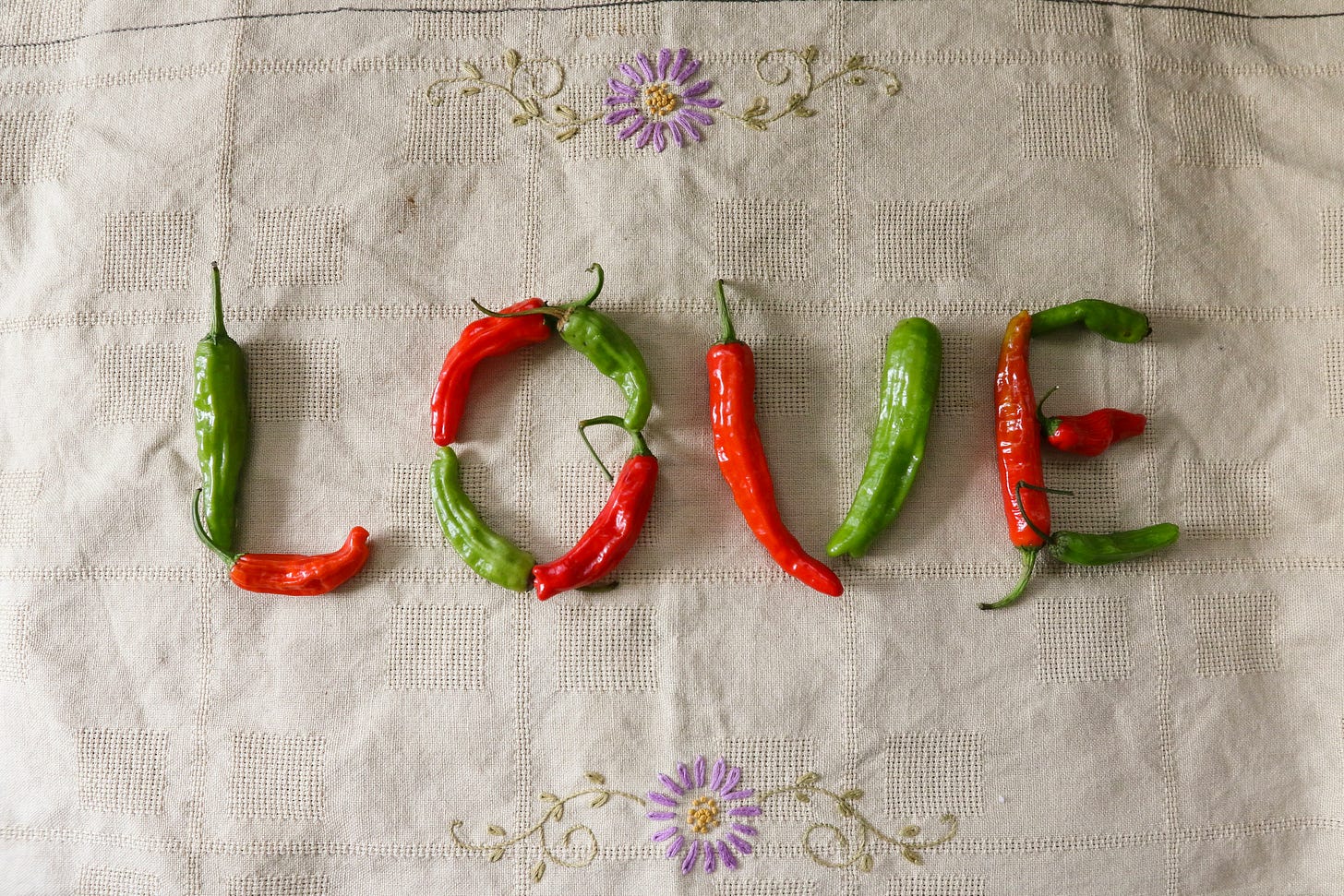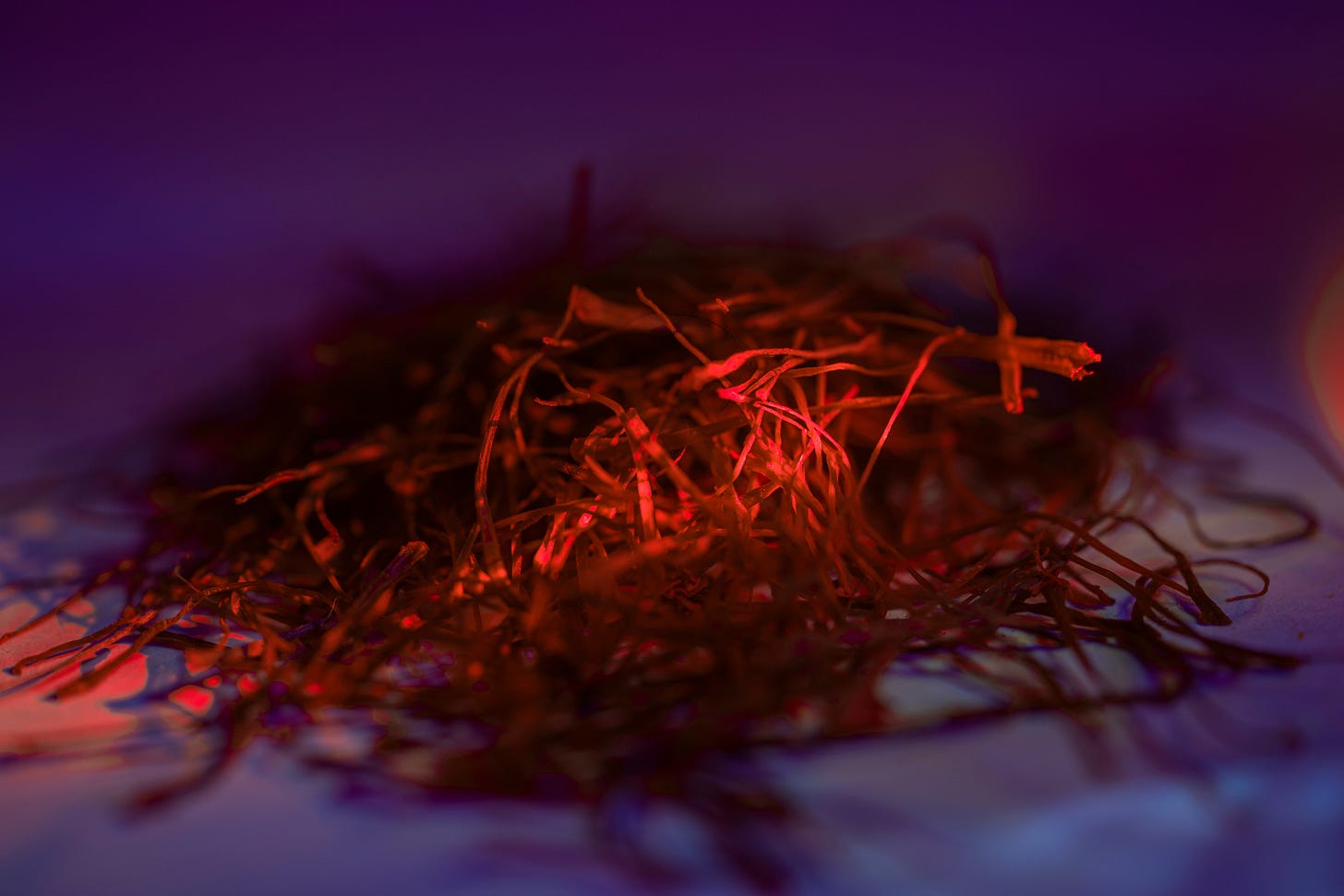This article is part of the Table Talk series, where we discuss everything from kitchen innovations to what’s on the shelves of your pantry. If it’s related to food, it’s on the table.


Passion on the Plate
In the intricate tapestry of human desires and pleasures, few concepts weave together myth, tradition, and science quite like the idea of an aphrodisiac food that ignites passions and enhance sexual experiences.
Much like the pursuit of luck, the quest for aphrodisiacs reflects humanity's age-old desire to harness control over fundamental aspects of existence. From ancient potions to modern-day supplements, humans have explored a vast array of substances in search of heightened arousal and sexual prowess.
Foods like oysters, chili peppers, chocolate, and strawberries are most often touted as the foods of love, but there are others that deserve their spot in our kitchens and on our tables on the way to the bedroom.
Phallic Asparagus
Asparagus, with its slender stalks and graceful tips, embodies a sense of elegance and allure that has captivated hearts and tantalized taste buds for centuries.
Since ancient times, asparagus has held a prominent place in the realm of fertility and desire due to its suggestive appearance. The Greeks and Romans considered asparagus to symbolize fertility, associating its phallic shape with masculine potency and reproductive prowess. Revered not only for its culinary appeal, it was believed to possess the power to ignite passion and enhance virility, making it a prized ingredient in love potions and a staple on the menus of newlyweds seeking to ensure their fertility and marital bliss.
In the realm of sexy science, asparagus boasts a bounty of nutritional benefits that contribute to its allure as an aphrodisiac. Rich in folate and vitamin E, it not only stimulates the senses but also provides essential nutrients for reproductive health. Folate, in particular, plays a vital role in DNA synthesis and cell division, making it crucial for the development of healthy sperm and eggs. Meanwhile, vitamin E is known for its antioxidant properties, which help protect reproductive cells from damage caused by free radicals.
Sexy Saffron
Sometimes called "The Spice of Passion," saffron exudes an aura of mystique and allure that has captivated cultures across the globe for millennia. The highly prized spice derives from the stigma of the Crocus sativus flower, commonly known as the saffron crocus. Each flower produces three bright red stigmas, which are carefully handpicked, dried, and used as saffron threads. Known for its vibrant color, distinct flavor, and unique aroma, saffron is one of the most expensive spices in the world by weight, owing to the labor-intensive process of harvesting and its relatively low yield per flower.

From the ancient Egyptians to Renaissance Europeans, saffron is prized for its purported mystical powers in inducing desire and enhancing sexual prowess. In ancient times, saffron was believed to possess the ability to awaken passions and stimulate the senses, making it a prized ingredient in love potions and aphrodisiac elixirs. Its association with romance and seduction transcended cultural boundaries, cementing its status as a symbol of passion and desire.
But saffron's allure extends beyond its reputation as an aphrodisiac; it also boasts a wealth of nutritional benefits that contribute to its appeal as a truly indulgent treat for both body and soul. Rich in antioxidants, saffron helps promote overall health and well-being, protecting the body from oxidative stress and inflammation. Its subtle yet complex flavor profile adds depth and complexity to dishes, elevating them to new heights of culinary excellence.

Alluring Almonds
Almonds have long held a special place in human culture, not just as a delicious and nutritious snack but also as a symbol of fertility, love, and passion. Across civilizations and through the ages, almonds are loved for their association with romance.
In ancient times, almonds were considered symbols of fertility and were often included in various rituals and ceremonies celebrating love and union. Among the Greeks and Romans, almonds were commonly given as gifts to newlyweds to bless their marriage with prosperity and abundance. The tradition persisted through the Middle Ages, where almonds became a staple ingredient in love potions and elixirs, believed to ignite desire and kindle passion. Ever wonder why Jordan almonds are a wedding favor staple?
Almonds are packed with essential nutrients that promote overall health and well-being. They are rich in heart-healthy fats, protein, and dietary fiber, making them a satisfying and nourishing snack. Additionally, almonds are an excellent source of vitamin E and zinc, nutrients that play crucial roles in reproductive health and hormone regulation. These nutritional benefits contribute to almonds' reputation as a truly indulgent treat for both the body and the soul.
Need a Little More Love?
We recommend these AS WE EAT episodes that explore the transformative power of food and the cultural history behind how these delicious foods came to be associated with lust, love, and fertility.
EP 11 Aphrodisiac Foods: Culture, Science, and Hummus
In honor of Valentine’s Day, Kim and Leigh take a look at the lore and science of foods that are purported to promote virility, trigger sensuality, and make you swoon. We are, of course, talking about aphrodisiac foods
Wedding Foods
Some wedding food traditions have endured through the ages while others follow social norms. Kim and Leigh discuss recipes with surprising ingredients, the symbolism of wedding foods, and ancient wedding favors.

Let’s Stay Connected
Follow us on Instagram @asweeat,
Join our Family Recipes, Traditions, and Food Lore community on Facebook
Subscribe to the As We Eat Journal
Listen to the As We Eat Podcast
Do you have a great idea 💡 for a show topic, a recipe 🥘 that you want to share, or just say “hi”👋🏻? Send us an email at connect@asweeat.com
Looking for a unique gift idea for a birthday, anniversary, holiday, host or hostess, or just because? Consider giving a subscription to the As We Eat Journal.
















*stocks up on almonds*
An enjoyable read! Of course we all know about chocolate, but I’d never heard about the aphrodisiac properties associated with asparagus, saffron and almonds. Definitely sparks some intriguing ideas for future recipes for a romantic meal!